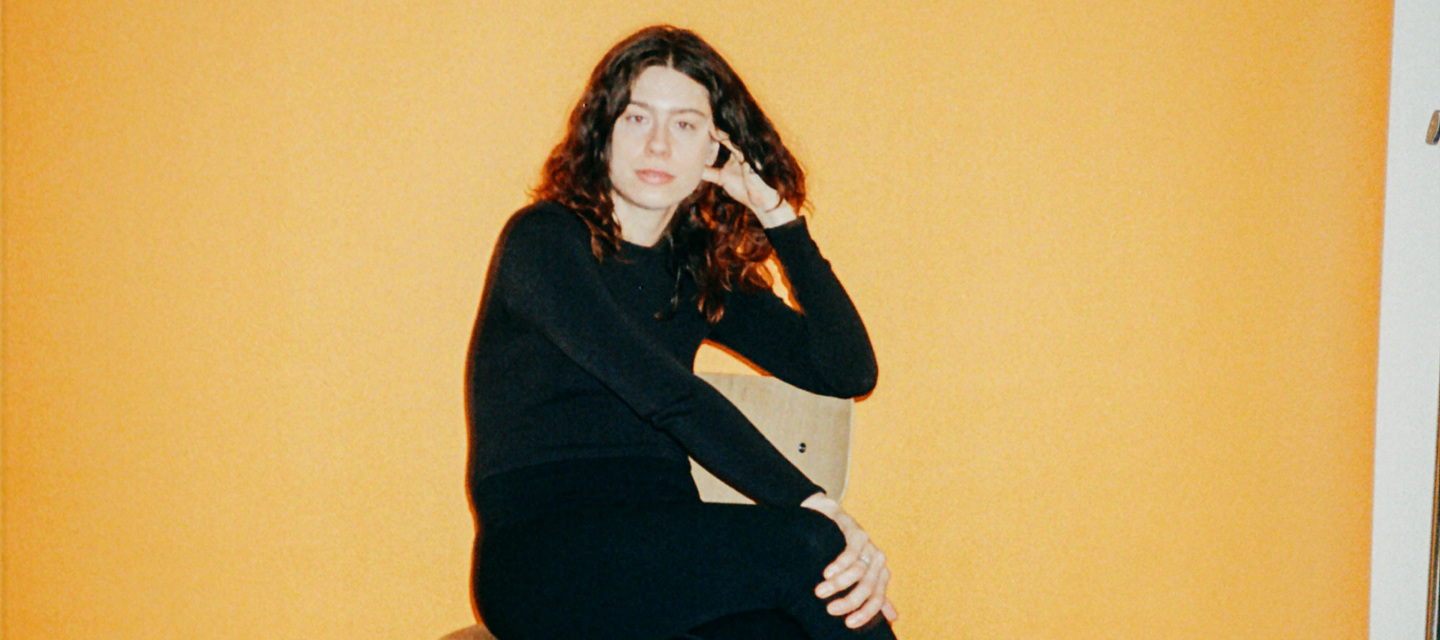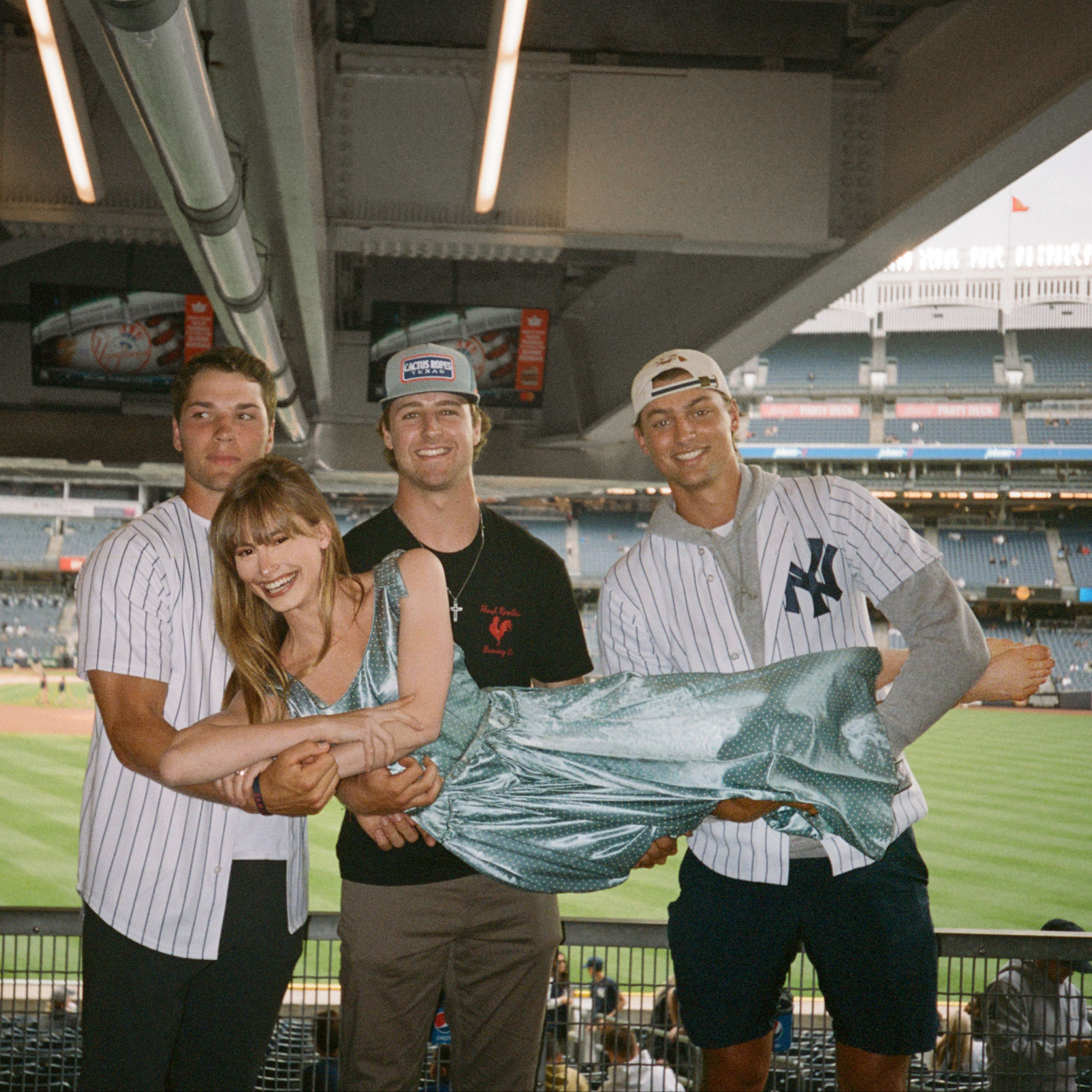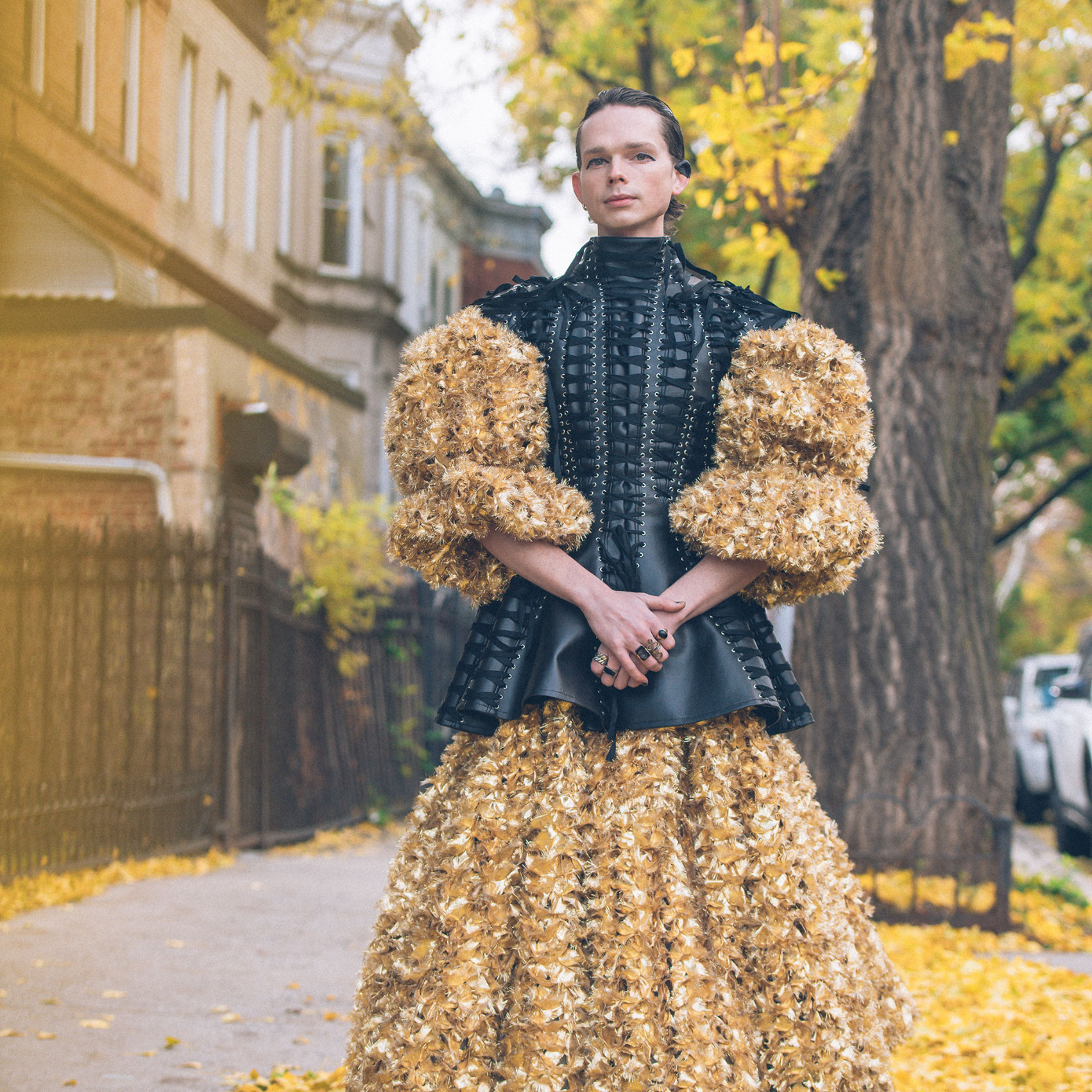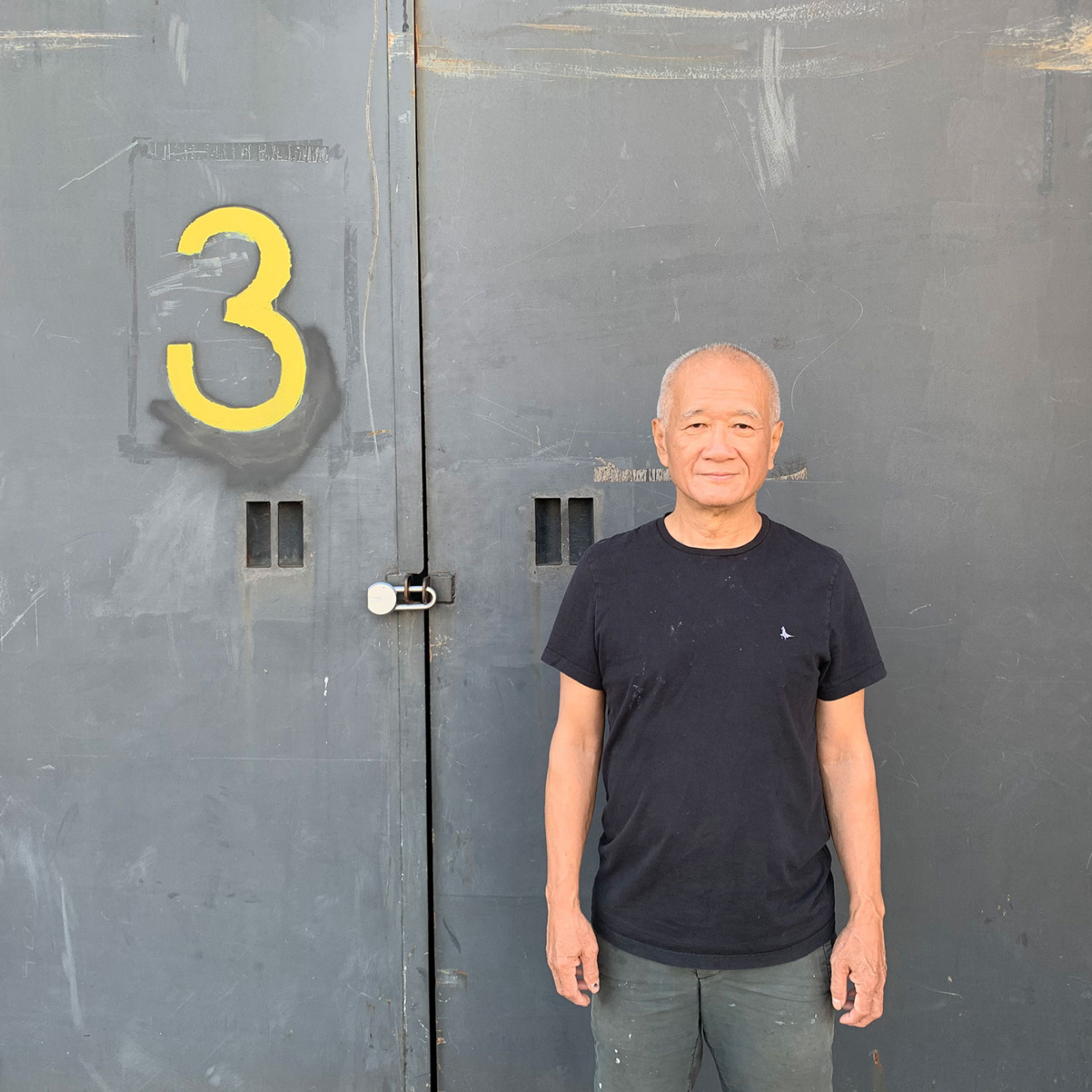Kat Herriman: The best advice for stage life?
Nora Turato: Rehearse, rehearse, rehearse, rehearse, rehearse and then perform, perform, perform, perform—like that, in a circle. Stop to reflect here and there, take mindful breaks between the takes so that the nervous system has time to adapt to the new challenge. There is this famous saying in neurology: “Neurons that fire together, wire together.” Neuroplasticity is a fundamental process for creating a breathtakingly good performance. Being a good performer really comes down to knowing what you are doing and how. That’s what confidence is and everyone loves confidence. People pay money to see confidence. Every breath, every gesture, every consonant has to be scripted and etched into your muscle memory so that you can freely enter the flow and confidently play with it when on stage. Basically, your body is an instrument and you gotta know your scale, inside and out, so that melodic oscillation can come up “naturally.” I really think people want to see effortlessness that comes from military grade prep, that can only be achieved through tons and tons of effort. It’s a great paradox every performer confronts. So, best advice: drill, drill, drill, drill!!! And then drill some more and don’t forget to rest.
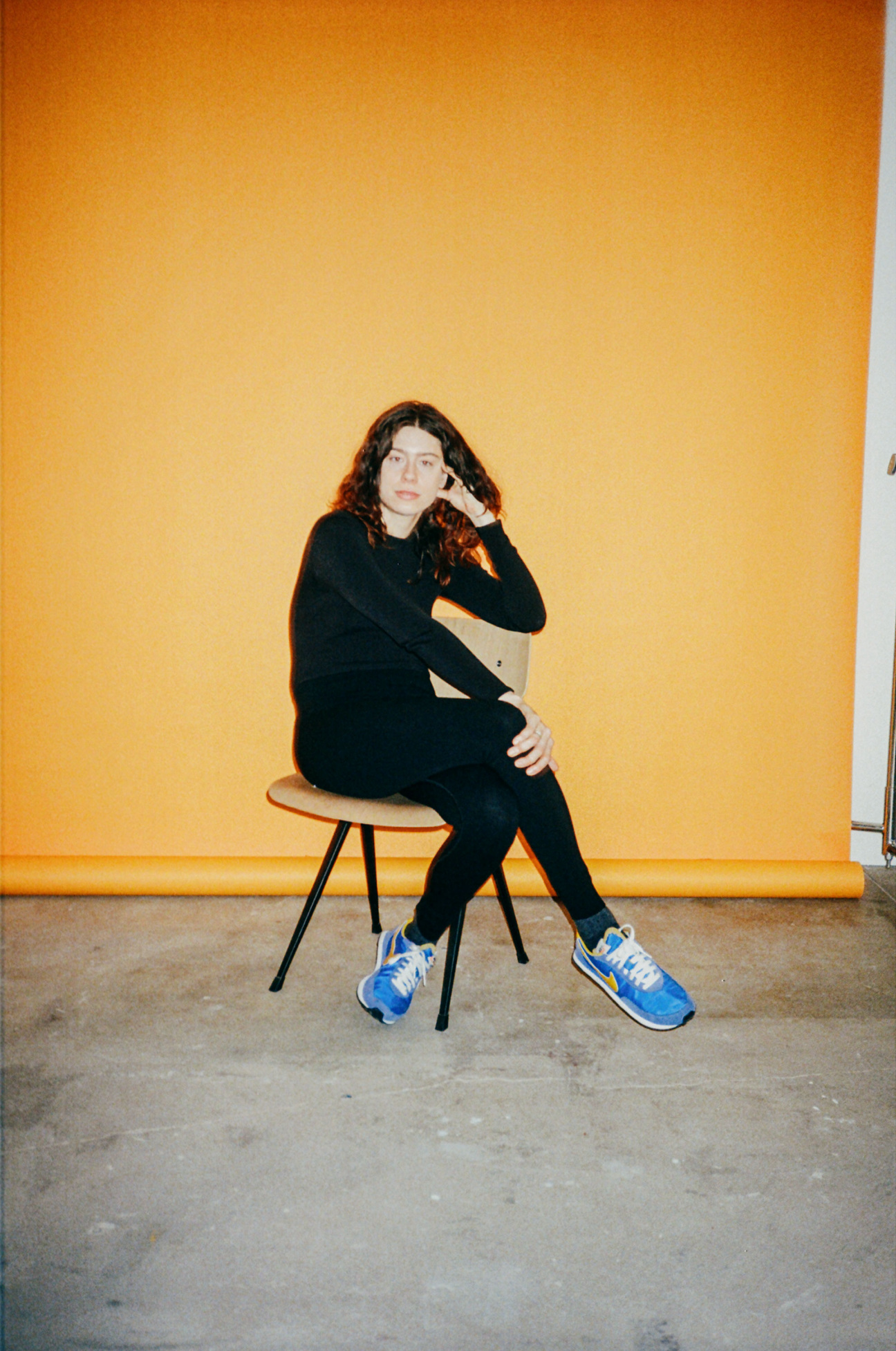
KH: What's the relationship between you and your stage self?
NT: My stage self is a weird-ass byproduct of my real self. My real self is super easy going, lazy and submissive and it’s precisely because all the mad energy goes into work. My stage self is a form of controlled madness. My work is my punching bag. People who know me through my work and then meet me privately tend to realize they totally miscalculated who I am.
KH: What is your preferred pre-performance ritual? What does it do for the show?
NT: Doing what I do is very draining. Getting into the state of selfless flow that is required to perform well is super challenging. I usually start prepping early in the morning with foam rolling two hours away. Then I do some pilates and stretching, some crazy cardio thing where I literally obliterate myself, then I take a cold shower, do push ups, jump rope, breath work, matcha, matcha, matcha and self hypnotize right before I go on stage. I wonder how mad this all sounds!
KH: What is one song always on your pre-performance playlist? What is one song you won’t be able to get out of your head this summer?
NT: I listen to Tomatis Method headphones for 30 minutes everyday and dance to it. On days that I perform, I’ll do extra, maybe an hour. Tomatis is this possibly quacky, sensory integration program that one can listen to. “Ear tuning,” they say. It’s often recommended to autistic children, but I found it very helpful in enhancing my proprioceptive capabilities and just being better at controlling my body movements when performing. It’s highly possible it’s just placebo, but I swear by it. I also listen to binaural frequencies while doing tongue twisters or chant the full 4,500-word script at twice the speed. I also play a digital piano with super good headphones on—I love doing that. Playing piano only for myself, jamming.
If Kendrick Lamar or Fiona Apple have an album out, I listen to that. But they don’t release music very often, so that means I don’t listen to music all that much. They are my biggest role models; I’m a total fan.
KH: How would you describe the role and responsibility of an audience?
NT: I think an audience has a responsibility to be empathetic towards the performer unless the performer is doing something terrible. It’s a super tough thing to perform, and just having a respectful audience helps so much.
KH: Attention spans are declining—research found supportive data in Denmark—how does the attention economy affect the way you think about performance? How can performance be part of healing this deficit?
NT: I really believe performance is the next big thing. Showmanship sublimated, entertainment unplugged. We had way too many seasons of way too many series. People want to see a raw, simple thing, a skillful body doing interesting things. One thing that matters, instead of three seasons and fifty episodes that don’t matter. One extreme always blows the other way. Too much TikTok eventually makes you want to see a soulful performance unplugged, in real life.
KH: What themes are you currently exploring and how can we expect to see them manifest in new work?
NT: I’m currently composing on a piano. I don’t know if the piano will appear only in my rehearsals or whether it will enter the live performances as well, or where it will go. But definitely more melody, more movement, ballet dancer meets a conductor type of thing, more piano, more jazz. But let’s see where it takes me, it’s really just the beginning, and good things take time. All I know is that I want to take time and compose something good. I want to compose it, script it and rehearse it down to how my finger moves. Every tiny detail.
KH: What do you hope to see more of on stage in the near future?
NT: What I hope to see is what I predict we will see more and more. I usually have a pretty good nose for these things. Think MTV Unplugged! Don’t you miss MTV Unplugged? BBC Peel Sessions? Steve Albini sound? Just as we see in the culinary world and all other industries, we will revisit basics. More raw, unprocessed stuff, stripped down and bare, sustainable and simple. Same as everyone talking about kefir and probiotics, everything is moving a little backwards. We took too many steps and now we have to take a few steps back, just to balance things out.

